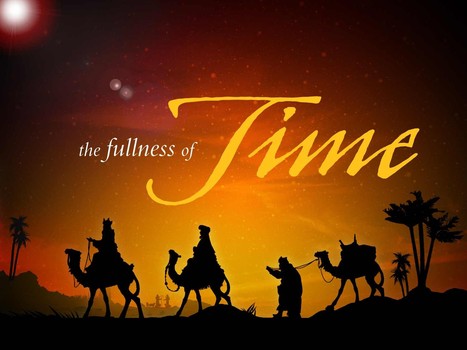The seminary where I spent a formative two years had a big, customizable sign out in front, the kind you see outside of a lot of churches. These signs are usually changed periodically, usually to announce a sermon topic or share a groan-worthy humorous aphorism. Our sign never changed; it always read: “Timeless truths for truth-less times”.
That little saying fit a lot of what our seminary was about: apologetics for a post-modern world with a heavy dose of systematic theology. I think there is a lot to be said in favor of this approach, and I am incredibly grateful for the time I was able to spend there. A radical devotion to Truth, both in its propositional and human/divine form, was instilled in me.
On the other hand, (and I’m sure the reader could see that there was going to be one) we really struggled with biblical studies. Now, granted, a vast majority of the inner workings were not devoted to biblical studies as a discrete discipline. (I was, at the time, one of two biblical studies majors in the entire seminary.) Nevertheless, our high view of scripture meant that every student took four biblical survey classes, and the Bible was also a center point of discussion. In most of those discussions, however, it was the object of apologetic discourse and/or defense. The Bible was vigorously defended if not always vigorously digested. A tragic result of this was that the Bible, as a whole, got subsumed under that category of “timeless truth.”
Why is this tragic? Its not tragic for the reasons that some might expect: that the Bible is horribly outdated, that our “progressive” ideals have moved us beyond its version of reality, that it will put us on the “wrong side of history”, etc. etc. It is tragic because one of the most powerful things that the Bible can teach us is that the most important things that have ever happened have happened in time. I am particularly reminded of this as we approach the Christmas season.
It is not a “timeless truth” that the Word became flesh and dwelt among us. It was not always true. There was a time, though Christians might find this hard to put their minds around, when there was no incarnation, no Cross, no resurrection, no Pentecost. My continued pursuit of biblical studies has lead me to the conclusion that unless we get this through our heads, that things happen in time, Christians will never really be able to understand the Bible. Christmas is a moment we can set apart not only to reflect on what has happened, what now is, but also on what that moment represents in the course of human history. Christmas changed the world.





1 Comment
Leave your reply.